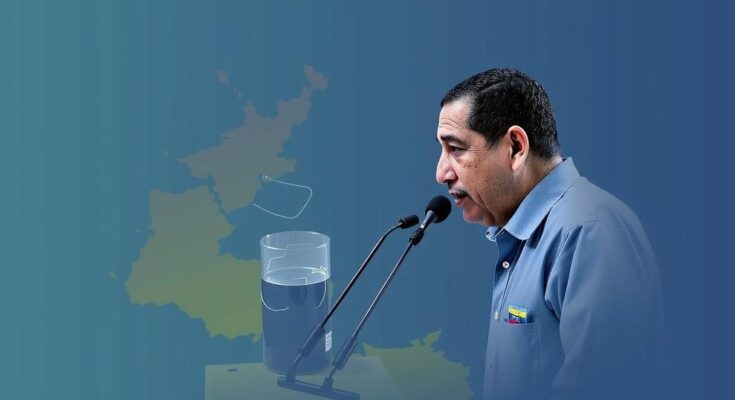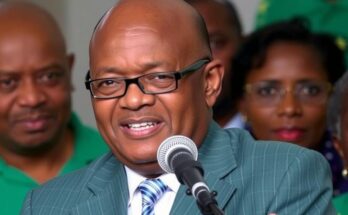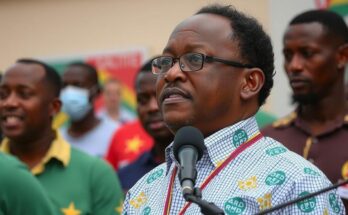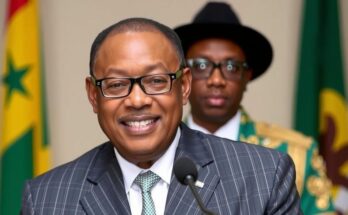Colombia has stated it will not recognize Nicolas Maduro’s reelection unless Venezuela publishes detailed voting records by January 10. Allegations of fraud have been raised by the opposition, asserting that their candidate won a majority of the votes. The situation highlights a significant political rift between Colombia, the international community, and Maduro’s administration amid ongoing unrest in Venezuela.
On Wednesday, Colombia announced that it would not recognize Venezuelan President Nicolas Maduro’s reelection unless his government releases the voting records from the contentious election conducted earlier this year before January 10, the end date of his current term. The National Electoral Council (CNE) of Venezuela, aligned with Maduro’s administration, proclaimed his victory shortly after the voting concluded in July, claiming he obtained 52 percent of the ballots. Nevertheless, a significant portion of the international community has expressed skepticism regarding Maduro’s electoral victory, urging for a comprehensive account of the vote, which the CNE has failed to provide as mandated by legal requirements. The opposition parties have alleged electoral fraud and released their independent calculations indicating that their candidate, Edmundo Gonzalez Urrutia, supposedly garnered two-thirds of the votes during the July 28 elections. In contrast, the CNE stated that the opposition received only 43 percent. Gonzalez Urrutia has since fled to Spain following a warrant issued for his arrest on charges that his political party deems unfounded. Colombian Foreign Minister Luis Gilberto Murillo asserted that the Colombian administration’s position is unequivocal: “the presentation of the (Venezuela voting) minutes must be made before the end of the current presidential term, on January 10, 2025.” He further emphasized that, without this information, Colombia would not acknowledge the election results proclaimed by the Venezuelan electoral authority. In response, Venezuelan Foreign Minister Yvan Gil accused Murillo of displaying timidity during bilateral discussions, yet claimed that Murillo’s behavior in public forums reveals the pressures he faces from hardline factions and the United States. Gil suggested that retaliation from Venezuela would take place at an appropriate time, warning Murillo to desist from interfering in Venezuela’s internal matters. Brazil has similarly withheld recognition of Maduro’s reelection, advocating for a detailed explanation of the electoral results. Several Latin American nations, including Argentina and Peru, have aligned with the United States in supporting the opposition’s claims of victory. Earlier this month, Murillo reiterated in a parliamentary session that Colombia would not validate Maduro’s reelection “until any doubt is dispelled.” The unrest following the announcement of Maduro’s reelection has resulted in severe crackdowns, recording at least 27 fatalities, approximately 200 injuries, and around 2,400 arrests in Venezuela.
The political climate in Venezuela has become increasingly contentious following the recent elections that resulted in Nicolas Maduro’s proclaimed triumph. The legitimacy of this reelection has been widely disputed both nationally and internationally, with allegations of electoral fraud surfacing from opposition factions. Understanding the dynamics of Colombia and Venezuela’s bilateral relations is essential as Colombia’s explicit conditions regarding the recognition of Maduro’s legitimacy highlight broader geopolitical tensions in the region. The refusal of multiple nations to validate the electoral process underscores a growing dissatisfaction with the state of democracy in Venezuela.
In summary, the Colombian government is firmly demanding the release of voting records from the Venezuelan elections to validate the results proclaimed by the CNE. This stance reflects widespread international skepticism regarding the legitimacy of Maduro’s presidency amidst allegations of electoral malpractice. The ongoing fallout from the election is contributing to a strained relationship between Colombia and Venezuela, with implications for regional stability and politics.
Original Source: www.barrons.com




